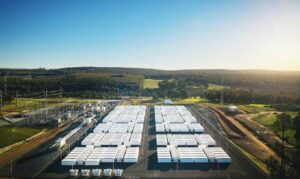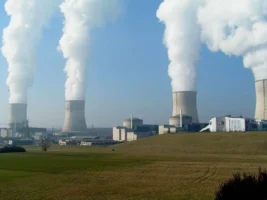The Abbott government’s Direct Action climate change policy is deeply flawed, not viable as a replacement for the carbon price, and is unlikely to achieve the most basic of goals required of Australia to meet its fair share of global carbon emissions reduction, a Senate Committee report has found.
The report, tabled on Wednesday, also calls on the Coalition to immediately adopt a more rigorous emissions reduction target, in line with the Climate Change Authority’s recent recommendation of 19 per cent below 2000 levels by 2020.
“There is overwhelming evidence indicating that the world must act now, and act urgently, to address the catastrophic consequences of climate change,” says the report. “Australia has a responsibility as the world’s highest per capita emitter to contribute its fair share of the global effort.
“The committee agrees with the evidence provided by academics, climate experts, the independent Climate Change Authority, environmental organisations and industry that Australia must substantially reduce its carbon emissions.”
Established in December 2013 to inquire into what is described as the federal government’s “failure to systematically address climate change,” the Committee’s members hail from the Labor Party (3), the Coalition (2) and the Australian Greens (1).
The report reveals that Labor and the Greens are united in calling for the Abbott government to keep Australia’s carbon pricing scheme in place; to adopt, immediately, the CCA’s recommended emission reduction targets – both short-term and long-term – and; to adopt a carbon budget approach to climate action.
“A carbon budget will help communicate to policy makers, industry and the public that early action on abating carbon emissions will be cheaper and more effective than delayed action,” says the report, which recommends the adoption of the CCA-proposed carbon budgets of 4,193 Mt CO2-e for the 2013–2020 period, and 101.1 Gt CO2-e for the 2013–2050 period.
Not surprisingly, the Committee’s two Coalition members – NSW Nationals Senator John Williams and South Australian Liberal Senator Anne Ruston – disagree, arguing in the Dissenting Report that the current 5 per cent emissions reduction target is “sufficient,” and that the carbon tax should be repealed and replaced with the party’s proposed alternative Emissions Reduction Fund (ERF).
(Interestingly, point number three on the Coalition Senators’ Dissenting Report is the statement that “the Government accepts the science of climate change.”)
But Greens leader Christine Milne is scathing in her comments about Direct Action and its centrepiece ERF, describing the former as “vastly inferior to existing law,” and the latter as “a small grant-based subsidy scheme for polluting industries… (that) will drive no transformation in the economy.”
“While it should be acknowledged that Direct Action is still transforming from a slogan into a policy,” Milne says in the Additional Comments section of the report, “there was not one single economist in written submissions or testimony who supported Direct Action over the existing emissions trading scheme. In contrast, economists have supported the retention of the existing law.”
Shadow ALP climate and environment minister, Mark Butler, has taken the opportunity of the report’s release to reiterate his party’s commitment to “seriously consider” the CCA’s recommendations on carbon emissions, and has called on the Coalition to do the same.
“Under existing legislation, the government must provide a formal response to the CCA’s recommendations by May,” Butler said in an email to RenewEconomy.
“It’s the Government’s responsibility to meet these statutory requirements and explain if it will change Australia’s targets in line with the CCA’s recommendations and our global commitments to reduce our carbon pollution. The Government also needs to explain to the Australian people how it plans to reach any emissions reduction target with their bad policy.”
But the Greens and the ALP don’t agree on all of the Committee’s findings – their opinions diverging over the recommendation that the introduction of the emissions trading scheme be brought forward to July this year.
“This is a cynical move based on making it cheaper for big polluters,” Milne says. “It is not a policy position responding to the accelerating global warming crisis.”
Milne argues that an extra fixed price year is necessary “to minimise the dislocation for clean technology investors,” rather than making it temporarily cheaper for big polluters by fast-tracking the introduction of the ETS.
Outside of Parliament, the committee report has been welcomed by green groups for its overlying message that Australia is not doing enough on climate change.
“The government’s proposed climate action plan is not up to the job of cutting Australia’s emissions to the extent required to deal with the problem,” said Australian Conservation Foundation climate change program manager Victoria McKenzie-McHarg.
“It’s time the government started listening to expert scientists and expert economists – and now this committee – rather than the voices of vested interests,” she said.







